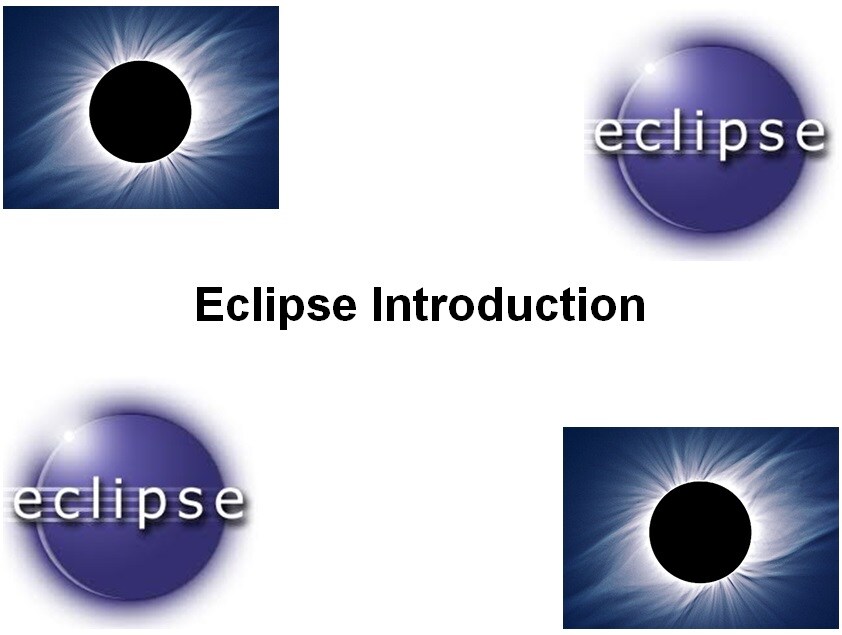-
Learning by doing
-
Trainers with practical experience
-
Classroom training
-
Detailed course material
-
Clear content description
-
Tailormade content possible
-
Training that proceeds
-
Small groups
In the course Eclipse Introduction participants learn how to work with the Eclipse development environment. Eclipse is a widely used IDE (Integrated Development Environment) for application development. Eclipse is often used to develop Java applications, but there are also plugins available for developing PHP and C++ applications.
The Eclipse Introduction course starts with a discussion of the key elements of the Eclipse IDE, Eclipse as a Tools Framework, and the structure of Eclipse projects.
The role of views and perspectives in Eclipse is discussed and participants learn how to configure Eclipse for a range of different tasks, such as using a specific Java SDK or Java version or using a specific application server.
The creation of different types of Eclipse projects will be discussed and participants will also learn how to navigate the multitude of settings and configuration options in Eclipse. Attention is also paid to debugging applications in the Eclipse Debug perspective.
Furthermore the extension of Eclipse through the installation of Eclipse Plugins is discussed. The Eclipse Introduction course also covers how to make Eclipse Plugins yourself, what architecture Eclipse Plugins have and what the role of OSGI is.
Finally the integration with JUnit and the creation of JUnit tests are discussed.
The course Eclipse Introduction is intended for developers who want to learn how to use the Eclipse IDE for software development.
Basic knowledge of and experience with programming is required to participate in the course Eclipse Introduction.
The theory is treated on the basis of presentation slides and is interspersed with exercises. Demo's are used to clarify the concepts further. The course material is in English.
After successful completion of the course, participants receive an official certificate Eclipse Introduction.

Module 1 : Eclipse Intro |
Module 2 : Eclipse IDE |
Module 3 : Eclipse Plugin Architecture |
| Eclipse Project Aims Eclipse Overview Eclipse Origins Early History of Eclipse Eclipse as Java IDE Eclipse as IDE Framework Eclipse as Tools Framework Top Level Projects Eclipse Projects Eclipse Open Source Community Eclipse Eco System Eclipse Foundation |
Workspace Component Standard Widget Toolkit Workbench Terminology Editors and Views Perspectives Debug Component Java Development Tools Java Perspective Java Editor Refactoring Eclipse Java Compiler Eclipse Java Debugger |
Eclipse Layering Eclipse Plugin Architecture Eclipse Plugins Plugin Manifest Eclipse Plugin Architecture Platform Architecture Plugin Activation Plugin Fragments Plugin Install Eclipse and OSGI Import-Package Require-Bundle |
Module 4 : Eclipse JUnit |
||
| Test Driven Development Unit Testing What is and why JUnit? JUnit Features JUnit Based Test Code JUnit mechanics Simple Test Simple Testcase Assert Statements Fixtures Test Suites Test Runner JUnit classes |
